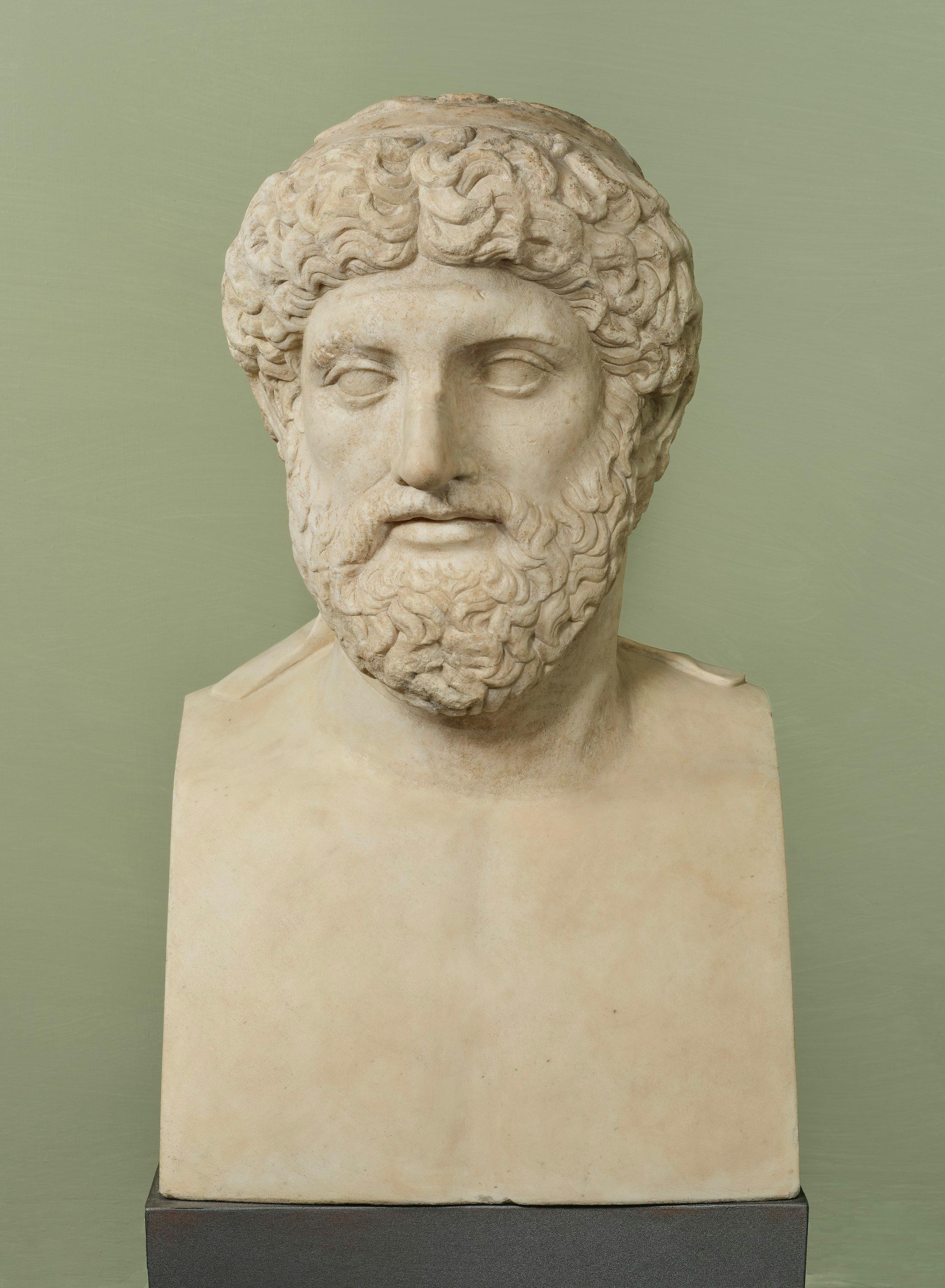Male head on modern herma, so-called Sophocles
Roman Art
The work depicts a man whose head is slightly turned to the right, with a low forehead and compact hair characterised by wavy locks with a central parting. Below the eyebrows, which are in relief, the two large eyes are defined by thick eyelids. The head is encircled by a wide band (tenia) tied at the nape of the neck, the ends of which fall over the shoulders. The mouth, which is partly hidden by a moustache, is characterised by thin lips and is barely open. The beard, compact and wavy like the hair, has a pointed shape.
The idealised features do not allow to easily date the work. However, the working of the surface and the rendering of the locks, which are characterised by a thin inner section typical of statues from the Antonine period, should allow to date the portrait back to the 2nd century A.D. (see for example the portrait of Hadrian of the Uffizi Galleries, inv. 1914, no. 8).
In the mid-19th century, an image of Sophocles was recognised in this herma. The original was probably a bronze sculpture from the 5th century B.C., as suggested by the angular shape of the eyebrows, the metallic rendering of the eyelids, and the parting of the locks.
The herma, half of the nose, a portion of the left eyebrow, and the ends of the band resting on the shoulders are the result of modern integrations. In addition, a thick plug has been subsequently inserted at the base of the neck. The cheeks, nose, lips and neck appear to have been polished, while there are slight chips on the right eyebrow and on the left side of the neck.
This herma, which was purchased by Lorenzo Vanni in 1770 together with the head of the so-called Anacreon (Inv. 1914 no. 385), was mentioned for the first time among the works preserved in the Hall of Inscriptions of the Uffizi and was described as an 'unknown man of virile age'.
M. Rodinò, Testa virile su erma moderna, cd. Sofocle in Divina Simulacra. Capolavori di scultura classica della Galleria degli Uffizi, catalogo della mostra (Firenze, Gallerie degli Uffizi, 12 dicembre 2023 – 30 giugno 2024), a cura di F. Paolucci, pp. 76 – 77, Livorno, 2023, e bibliografia precedente
